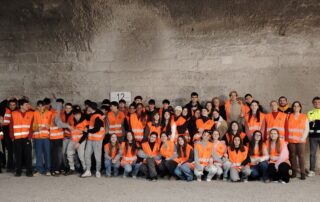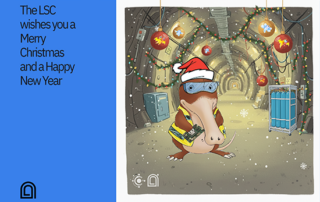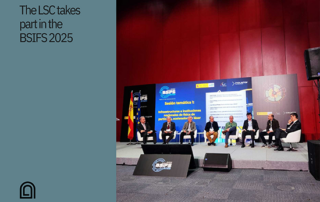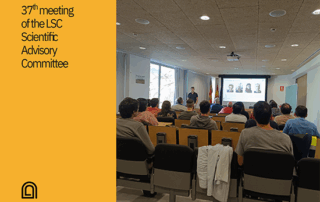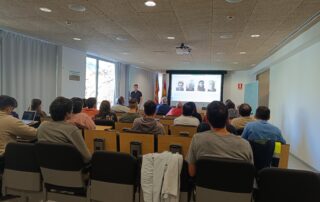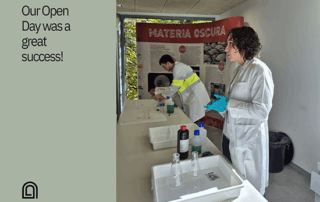Scientific Day for high school students
On January 15, the LSC held its Science Day for the second year in a row, welcoming students on the 2nd year of High School from centres in Jaca.Throughout the day, students took part in various workshops and learned about key techniques used at the LSC, such as copper electroforming [...]
The LSC wishes you a Merry Christmas and a Happy New Year
The LSC closes a successful year. We head into the holidays having completed the design of the anti-implosion covers for Hyper-K, which will protect the detector’s 20,000 eyes. During 2025, the LSC also launched its first in-house biology experiment, simulating the conditions of space travel: microgravity, cosmic silence, and proton irradiation. The LSC and our mascot Desmán wish you a happy 2026, full of health, science, and new discoveries.
The LSC takes part in the BSIFS 2025
The LSC, together with other ICTS, participated in the Big Science Industry Forum Spain 2025 (BSIFS2025) organised by the CDTI, the INDUCIENCIA Technology Platform and the Spanish Science Industry Association INEUSTAR. This is the first Science Industry forum to be held in Spain. The aim of the forum is to strengthen the capabilities of the Science Industry in Spain and show society the potential of this sector as an engine of economic growth.
37th meeting of the LSC Scientific Advisory Committee
The members of the LSC Scientific Advisory Committee held their 37th meeting on 4 and 5 November. Presentations were given on the TREX-DM, BabyIAXO, HENSA and NEXT-100 experiments and the DAMIC proposal. This will be the last meeting for four of its members: Gabriella Catanesi (INFN), Carlos Lacasta (CSIC Valencia), Olof Tengblad (CSIC Madrid) and Victoria Ley (CSIC Madrid), to whom the LSC would like to express its gratitude for their invaluable contribution over the years.
37th meeting of the LSC Scientific Advisory Committee
The members of the LSC Scientific Advisory Committee held their 37th meeting on 4 and 5 November. Presentations were given on the TREX-DM, BabyIAXO, HENSA and NEXT-100 experiments and the DAMIC proposal.This will be the last meeting for four of its members: Gabriella Catanesi (INFN), Carlos Lacasta (CSIC Valencia), Olof [...]
Our Open Day was a great success!
We would like to thank everyone who visited us and took part in the activities. It was a pleasure to open the doors of the laboratory and share a morning full of science, curiosity, and fun for the whole family. We hope you had a wonderful time. See you next year, with even more enthusiasm to share science together!


